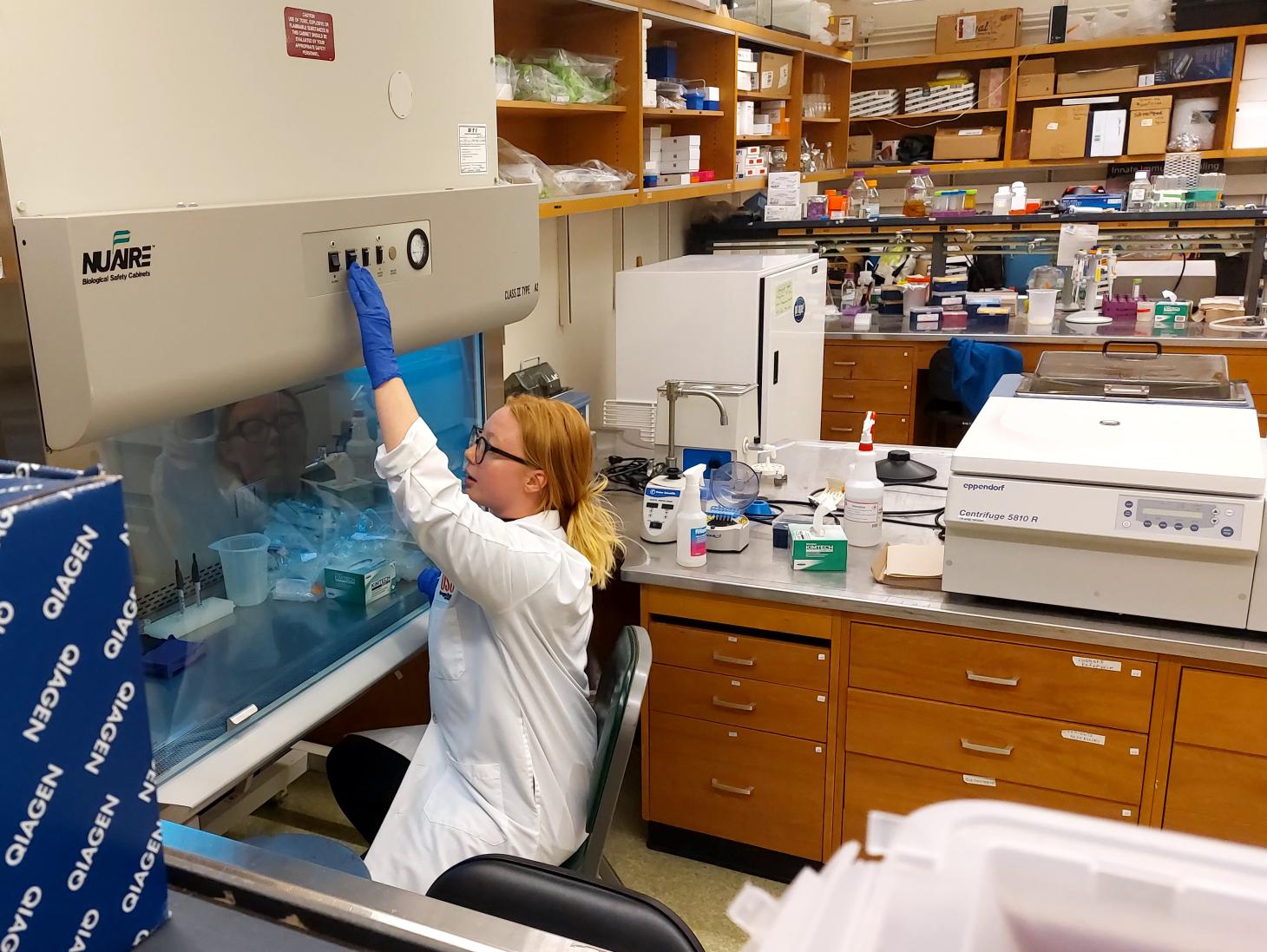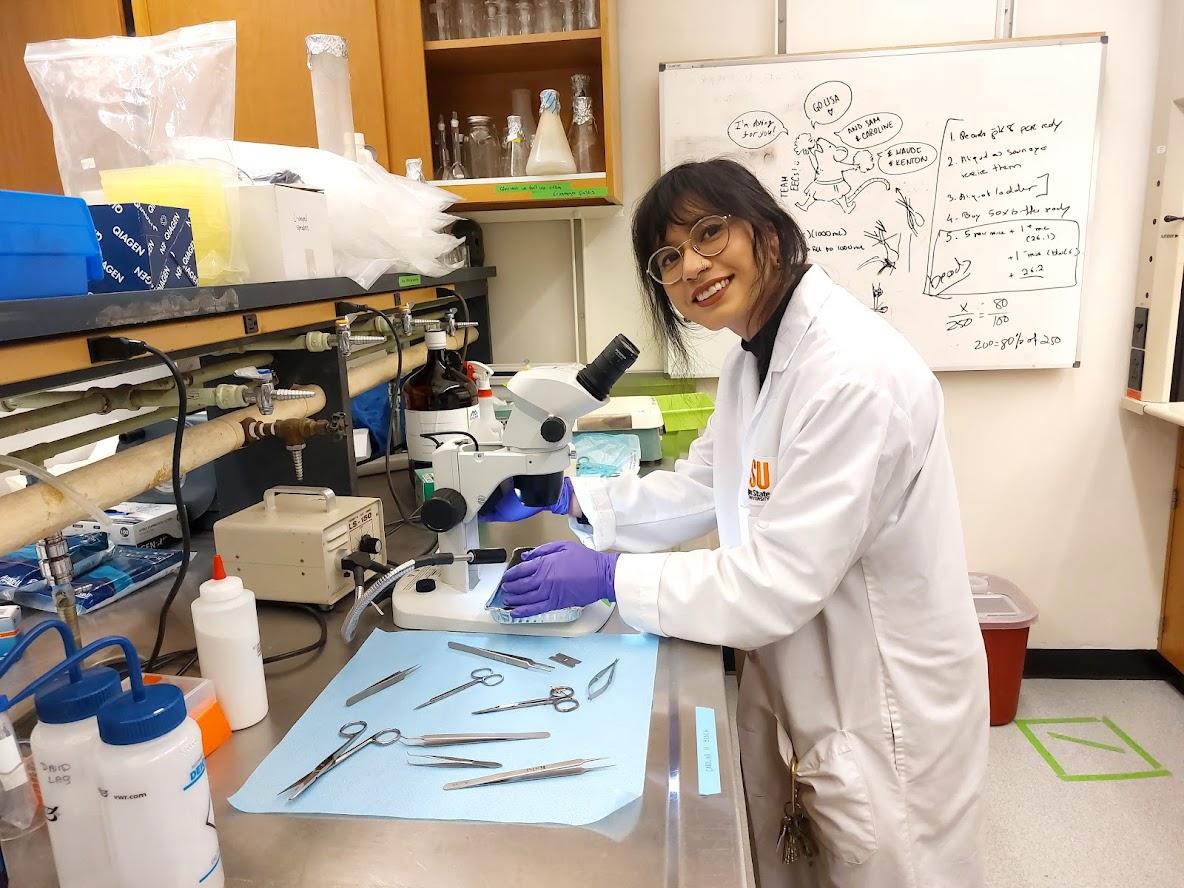Caroline Hernández, a graduate student conducting research in Dr. Maude David’s lab, focuses on the human gut microbiome, specifically the connection between the gut microbiome and the brain.
She studies enteroendocrine cells, which are located in the gut and secrete hormones to communicate with the rest of the body. It was recently discovered that these enteroendocrine cells can connect with an important section of the brain, composed of vagus neurons.
This means that, in just a few milliseconds, those enteroendocrine cells can send a message from the gut all the way up to the brain. Hernández’s work takes this one step further and probes into the microbial role of this gut-brain connection.
In the lab, she studies if gut microbes can make a direct impact on these enteroendocrine cells through protein-protein interactions, which then impact nerve function.
Hernández didn’t always know that science was her calling.
In fact, she started her undergraduate career as an art major, focused on creating art that looked at communication and interactions. Although she worked in mixed media, some of her art allowed observers to directly interact or touch the work she created.
She jokes that she wanted to investigate how people communicate, but decided they were too big, and chose to study the communications between tiny microbes instead.
From there, she was drawn to the interactions of the gut microbiota and its host and focused on how things like diet could influence the microbiome.
Receiving the NSF grant means that Hernández can broaden her scope of research.
When she first came to OSU, she was interested in investigating the sex differences between the microbiomes. With this grant, it allows her to ensure that she can explore this new route alongside her pre-existing research.
With her new research, she wants to ensure that the findings are available to everyone.
"I want to make science as accessible as possible," Hernández says. "Ultimately, everyone’s got gut microbes and a brain, so understanding a bit more about that communication pathway can provide a lot of information."

